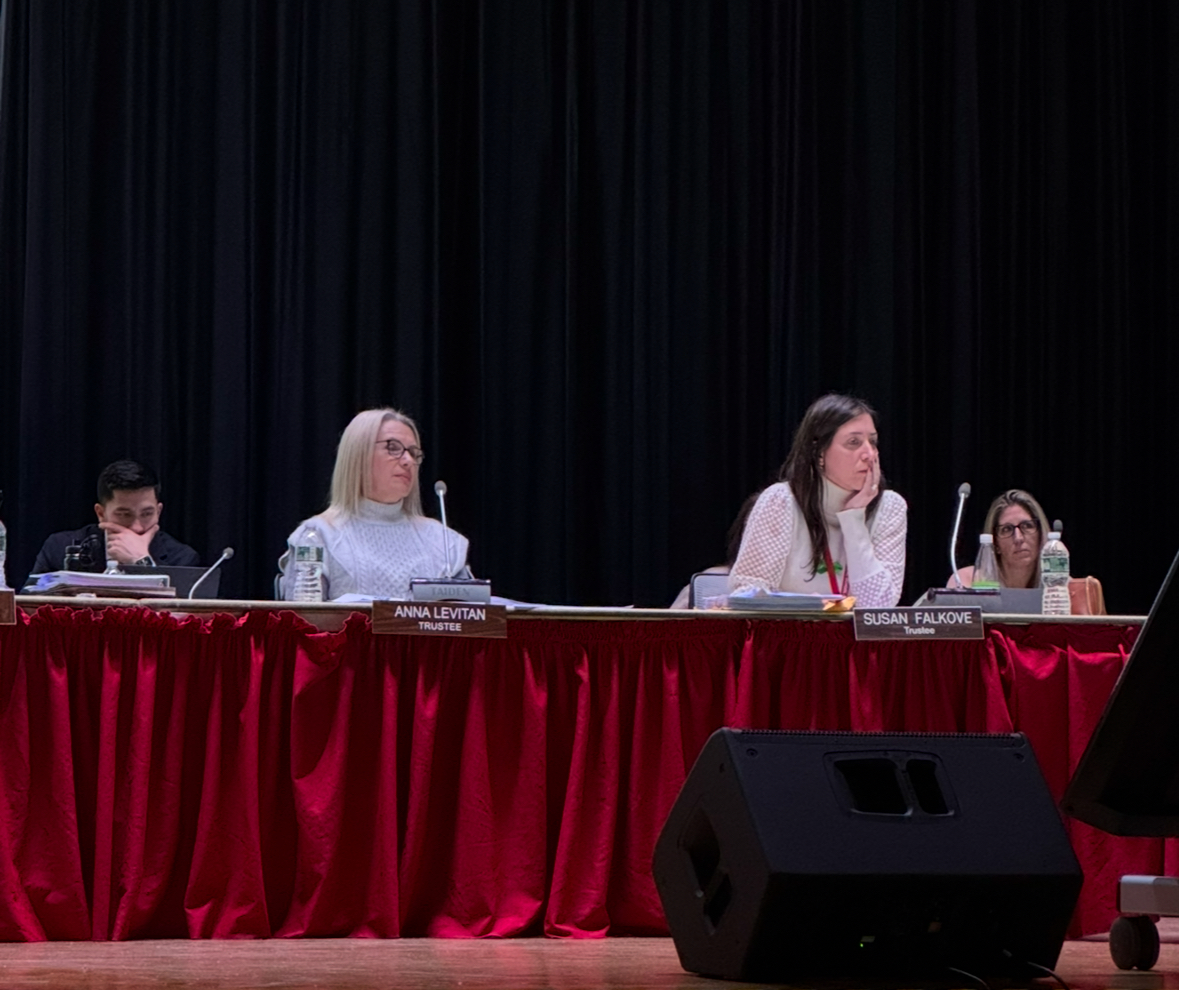The Syosset Board of Education discussed changes to the state graduation requirements, which are expected to be fully implemented by the fall of 2029.
The school is already “positioned for a lot of these changes,” said David Steinberg, assistant superintendent for secondary curriculum, instruction and assessment told the meeting Monday.
Steinberg said the state established a commission in 2019 to rethink the graduation requirements, focusing on program requirements, learning experiences and measurements and assessments.
The state currently offers three types of diplomas: local, Regents and Advanced Regents. Among the state’s proposed changes, a single diploma will be offered to students, which will have different seals and endorsements to showcase student growth in a particular subject.
Currently, students must pass five Regents exams to receive a local or Regents diploma, and they must pass eight Regents to receive an advanced regents diploma. Steinberg said New York is one of two states that currently have a Regents-style assessment tied to graduation.
Steinberg said a passing grade on the state regents exams will not be required to graduate, but students will still be expected to sit for the exam.
Additional proposed changes are the adoption of the state’s portrait of a graduate, sunsetting the current diploma assessment requirements and redefining credits, Steinberg said.
The state’s portrait of a graduate features seven characteristics that students are expected to have upon high school graduation, Steinberg said.
According to the state, a graduate should be a critical thinker, global citizen, effective communicator, social-emotional competence, cultural competence, literate across content areas and innovative problem solver.
Steinberg said the state’s characteristics of a graduate are similar to the existing standards at the high school.
“When we look at the different components here, they do very much align with the conversation we’ve been having here at Syosset for quite some time,” he said.
Syosset schools have already begun offering seals, like the seal of biliteracy and the seal of civic readiness, to student diplomas. Steinberg said the school also offers “pathway endorsements” if students fulfill certain courses, as well as skill-based endorsements, like the Microsoft Office Specialist. The school also offers credited internship and credited work-based learning diploma programs, he said.
As the state moves towards its new graduation requirements, Syosset schools will sunset their current requirements, and the state will redefine student credit and learning experiences. By the 2027-2028 school year, the school will move to one diploma.
Steinberg said the state has not yet been clear about how it will assess the components of a graduate but the school has already fostered those characteristics.
“An ‘effective communicator,’” Steinberg said. “That’s happening across our curriculum. We’re not going to have a course on effective communication, but we’ll start to look at the courses—and what we’re doing within our courses—to help elevate those skills.”
Steinberg said local districts can add their own requirements to a diploma now and withhold it from the student if they are not completed, even if the student meets state requirements. He said that amid the state changes, this will not be the case as districts will have to give diplomas to anyone who meets the state requirements.
Board members expressed concerns about the “pathways” in certain subjects.
“They kind of get pigeon-holed,” said Board Trustee Susan Falkove said.
“We do want to foster trying different things, even if it’s not in their natural interest and they didn’t know it was an interest,” said Board Trustee Lynn Abramson. Abramson said she worries abou the school culture becoming “pathway-driven.”
Steinberg said students will not be expected to choose a pathway before selecting their courses.
“They’re not declaring a major. They’re not declaring a concentration,” Steinberg said.
Instead, he said guidance councelors will meet with students later in their high school career to analyze how their “natural course selection” and interests align with the state’s requirements. He said the school has the ability to create its own pathways to cater to student interests in the districts.
Board members also expressed concern about student motivation under the new requirements.
“Will there be a way that we do not lose a single student who’s not as motivated either to excel or find a passion?” asked Board Trustee Shany Park.
Superintendent Thomas Rogers said allowing students to demonstrate their proficiency in different ways may motivate students to explore new areas of interest.
Steinberg said standardized tests may become “barriers” to students in certain subjects and the changes will eliminate this challenge.
“I think the state’s intention here is to provide multiple ways for students to demonstrate their proficiency and their masteries,” Steinberg said.
Read More: Syosset Ed Board introduces new initiatives for eighth-graders































